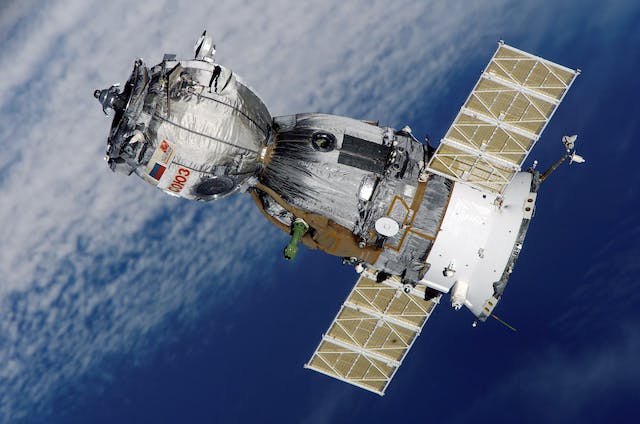The exploration and utilization of space have long captured humanity’s imagination. In recent years, the space tech industry has experienced a remarkable transformation, with breakthroughs in technology, ambitious missions, and an increasing involvement from both public and private sectors. The year 2023 marks a pivotal juncture in the trajectory of space technology, unveiling trends that promise to redefine the understanding and utilization of the cosmos in the years to come. Furthermore, the integration of nanosatellites and microsatellites has significantly expanded, fostering diverse applications in Earth observation, communication, and scientific research. Additionally, the increased commercial interest in asteroid mining and lunar resource utilization is poised to revolutionize resource accessibility beyond Earth.
1. Advancements in Satellite Technology
One of the most significant trends in the space tech industry involves rapid advancements in satellite technology. Satellites play a crucial role in telecommunications, Earth observation, and global connectivity. In 2023, there was a surge in the deployment of smaller, more cost-effective satellites, revolutionizing data collection, internet accessibility, and remote sensing capabilities. Moreover, the introduction of constellations of satellites, such as those designed for global internet coverage, is reshaping connectivity worldwide. This provides opportunities for innovation in various sectors, from agriculture to finance. The increased utilization of satellite data in climate monitoring and disaster management demonstrates the expanding role of satellite technology in addressing global challenges and ensuring societal resilience.
2. Emergence of New Players and Global Collaboration
The space industry has traditionally been dominated by government agencies like NASA and Roscosmos. However, there has been a notable shift towards the active involvement of private companies. SpaceX, Blue Origin, and other emerging space entities have not only disrupted the market but also fostered healthy competition. In 2023, this trend intensified because more private enterprises entered the arena, stimulating innovation and cost-effective solutions. Global collaborations among countries and private firms have become more prevalent, leading to joint missions, knowledge-sharing, and shared investments, further accelerating advancements in space technology and expanding opportunities for space careers.
3. Sustainable Space Initiatives
As humanity’s presence in space expands, the importance of sustainability comes to the forefront. A significant trend in 2023 is the growing focus on sustainable space exploration and utilization. Companies are increasingly mindful of space debris, adopting practices to mitigate the growing issue of orbital litter. There’s also a concerted effort to develop eco-friendly propulsion systems, explore solar and electric propulsion, and reduce the environmental impact of space missions. This eco-conscious approach reflects a broader societal shift towards responsible and sustainable practices, even beyond the confines of Earth.
4. Growth in Space Tourism and Colonization Plans
Space tourism has been on the horizon for some time, and 2023 showcases significant strides in this domain. Companies like SpaceX, Blue Origin, and Virgin Galactic are actively pursuing plans to make space travel more accessible to civilians. There’s a growing market for suborbital flights, offering individuals a glimpse of space, albeit briefly. Simultaneously, long-term ambitions toward space colonization continue to gain traction. Concepts for establishing human habitats on the Moon and Mars are no longer confined to science fiction. The realization of these ambitions might not be immediate, but the groundwork and planning are being laid out in earnest.
5. Integration of AI and Robotics in Space Missions
Artificial Intelligence (AI) and robotics play an increasingly integral role in space exploration. In 2023, the utilization of AI for autonomous decision-making in space missions will become more refined. From autonomous rovers on distant planets to AI-assisted data analysis, the integration of these technologies streamlines operations, reduces human error, and enhances the efficiency of space missions. Moreover, advancements in robotics enable more complex and versatile tasks in space, laying the foundation for future developments and space exploration endeavors. Additionally, the implementation of swarm robotics in space missions shows promise in collaborative tasks and collective decision-making, fostering more adaptable and cooperative robotic systems for various exploration needs.
A New Era of Space Innovation
The space tech industry stands on the brink of a new era, characterized by unprecedented advancements, collaborations, and ambitions. The trends witnessed in 2023 forecast a future where space technology becomes more accessible, sustainable, and integrated into our daily lives. As space exploration continues to evolve, the prospects for space-related careers expand, inviting a diverse array of professionals to contribute to humanity’s quest to unlock the mysteries of the cosmos. The journey ahead promises a fusion of innovation, collaboration, and discovery, marking a transformative phase in the human endeavor to explore the final frontier. Furthermore, the increasing privatization of space initiatives opens new avenues for entrepreneurial opportunities, encouraging a thriving ecosystem of startups and innovations in the space sector.



